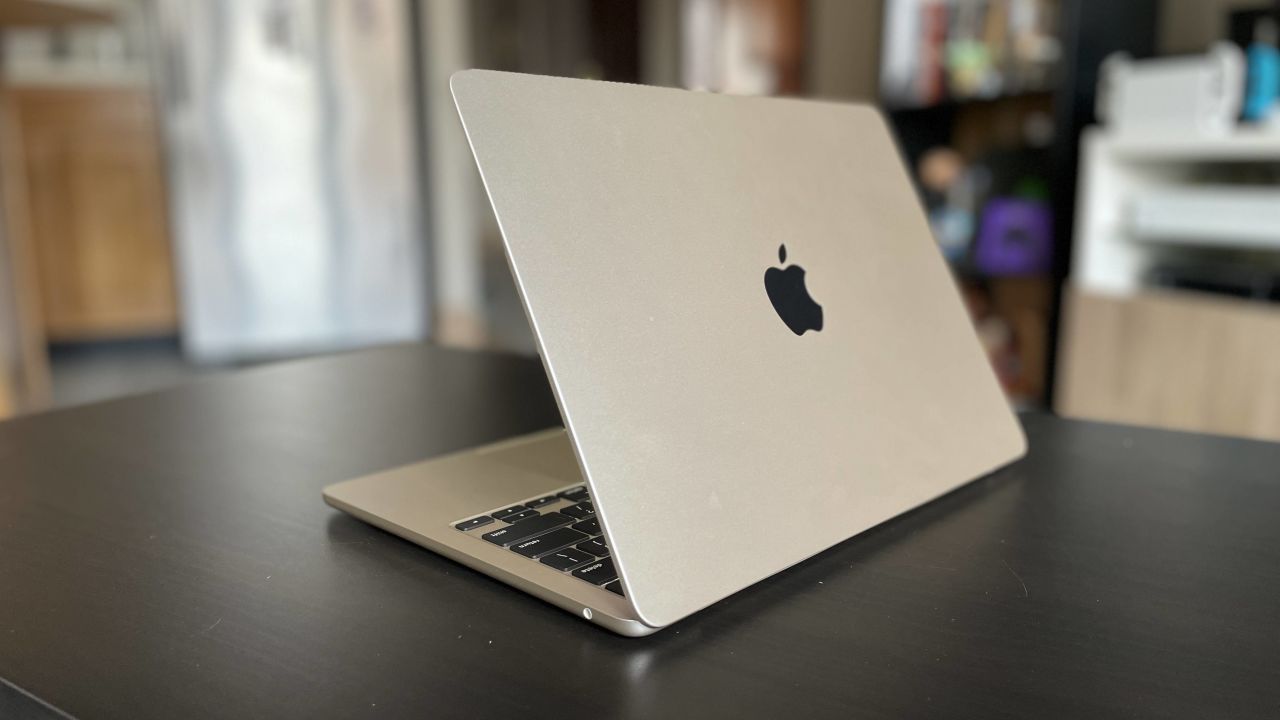
Unveiling the Truth: Empowering You with the Weighty Facts of Laptop Portability
Have you ever wondered how much your laptop weighs? Maybe you’re planning on taking it on a trip and want to know if it’s too heavy to carry around all day. Or maybe you’re just curious about the weight of different laptop models.
Well, you’re in luck! In this blog, we’ll explore the weight of laptops and provide you with some helpful information to make your decision-making process easier. From ultra-lightweight options to heavier gaming laptops, we’ll cover it all.
So whether you’re a student, a business professional, or a gamer, keep reading to find out how much your laptop weighs and what factors can affect its weight.
Laptop weight is a topic that often sparks debate and confusion among consumers. When it comes to purchasing a laptop, understanding its weight is crucial for making an informed decision based on individual needs and preferences. The purpose of this blog post is to shed light on the weighty debate surrounding laptops and provide clarity and insights into this important aspect of portable computing.
In this blog post, we will explore the different measurements used for laptop weights, including the distinction between the weight of the laptop alone and the weight including accessories from pounds to kilograms. We will also delve into the factors that influence laptop weight, such as components like processors, storage options, and battery size.
Additionally, we will discuss the role of lightweight materials and design innovations in reducing laptop weight, showcasing examples of laptops that utilize these advancements.
Understanding Laptop Weight Measurements
Laptop weight measurements can often lead to confusion due to the various ways in which they are expressed. It is crucial to differentiate between the weight of the laptop alone and the weight including accessories. Typically, when referring to laptop weight, it signifies the weight of the device without any additional components such as chargers, cables, or peripherals. However, some manufacturers may provide weight measurements that include accessories, so it is essential to read the specifications carefully.
Moreover, it’s important to understand that the weight of a laptop can vary based on its components. Processors, RAM, storage options, and battery size can all impact the overall weight of a laptop. For example, gaming laptops with high-performance graphics cards and larger batteries tend to be heavier compared to ultrabooks or thin and light laptops.
Lightweight Laptops
In recent years, there has been a growing demand for lightweight laptops that offer enhanced portability without compromising performance. The terms “ultralight” or “portable” are often used to describe these laptops, but their definitions can vary. Generally, ultralight laptops weigh less than 3 pounds (1.36 kilograms) and are designed to be highly portable, making them ideal for frequent travellers or individuals who prioritize mobility.
Several popular lightweight laptop models have garnered attention in the market. These include laptops from the ultrabook category, which are known for their slim profiles and lightweight designs. Examples of popular ultrabooks include the Dell XPS 13, MacBook Air, and Lenovo ThinkPad X1 Carbon.
These laptops typically weigh between 2.5 to 3.5 pounds (1.13 to 1.59 kilograms) and offer a balance of portability and performance. Additionally, there are also compact gaming laptops available that provide a blend of power and portability, weighing around 4 to 5 pounds (1.81 to 2.27 kilograms).
Standard Laptop Weights
When it comes to standard laptop weights, there is a range of weights based on different categories and form factors. Ultrabooks, known for their slim and lightweight designs, generally weigh between 2.5 to 3.5 pounds (1.13 to 1.59 kilograms). These laptops prioritize portability without sacrificing performance, making them a popular choice for professionals on the go.
On the other hand, gaming laptops tend to be heavier due to their powerful hardware and dedicated graphics cards. They typically weigh around 4 to 7 pounds (1.81 to 3.18 kilograms) to accommodate the necessary components for a seamless gaming experience. Workstations, designed for demanding tasks such as video editing or 3D modelling, can weigh over 5 pounds (2.27 kilograms) or more, as they require robust processing power and advanced features.
It’s worth noting that laptop weight can also vary based on screen sizes and form factors. Smaller laptops with screen sizes ranging from 11 to 13 inches tend to be lighter compared to larger laptops with 15 to 17-inch displays. Additionally, 2-in-1 convertible laptops, which offer both laptop and tablet functionality, might have slightly higher weights due to their versatile designs and additional components.
Factors Influencing Laptop Weight
Several factors contribute to the overall weight of a laptop. One crucial factor is the choice of components. Powerful processors, such as those found in gaming or workstation laptops, tend to be larger and heavier than low-power processors commonly used in ultrabooks or thin and light laptops. Similarly, storage options like traditional hard drives are generally heavier than solid-state drives (SSDs) due to their mechanical components.
Battery size is another factor that affects laptop weight. Larger batteries capable of providing longer battery life can add to the overall weight of the device. High-capacity batteries are often found in laptops intended for intensive tasks or extended usage away from power outlets.
Other components such as the display, keyboard, and chassis materials can also impact the weight. Laptops with larger, high-resolution displays or keyboards with additional features may contribute to a slightly higher weight. Furthermore, the choice of materials used in the laptop’s construction plays a significant role. Lightweight materials like carbon fibre, magnesium alloy, and aluminium are often employed to reduce weight while maintaining durability and structural integrity.
Lightweight Materials and Design Innovations
The use of lightweight materials and design innovations plays a crucial role in reducing the weight of laptops. Materials like carbon fibre, magnesium alloy, and aluminium are commonly employed in laptop construction to achieve lighter weights without compromising durability. Carbon fibre is known for its exceptional strength-to-weight ratio and is often used in high-end laptops to reduce weight while maintaining structural integrity.
Magnesium alloy offers a good balance of strength and weight, making it a popular choice for laptop chassis. Aluminium is widely used due to its lightweight nature and ability to dissipate heat effectively.
In addition to materials, innovative design approaches contribute to lighter laptops. Manufacturers utilize strategies such as slim bezels, compact form factors, and efficient heat dissipation mechanisms to reduce weight without sacrificing performance or functionality.
Practical Considerations for Laptop Weight
Considering laptop weight is essential when selecting a device that suits your specific usage scenarios. For frequent travellers or individuals who carry their laptops on a daily basis, opting for a lightweight laptop is crucial for convenience and portability. Lighter laptops are easier to carry in backpacks or bags and cause less strain on the shoulders and back. On the other hand, if you primarily use your laptop in a stationary setting, such as an office or home, weight might be of lesser importance.
Consider factors such as the duration and frequency of travel, the need for long battery life, and the specific tasks you’ll be performing on the laptop. For instance, if you require a highly portable device for basic productivity tasks and web browsing, a lightweight ultrabook or thin and light laptop would be suitable.
However, if you’re a professional who needs robust computing power for demanding tasks like video editing or 3D rendering, a slightly heavier workstation or gaming laptop might be necessary.
Trade-offs and Performance vs. Weight
When it comes to laptops, there is often a trade-off between weight and performance. Powerful hardware, such as high-end processors, dedicated graphics cards, and larger batteries, tends to increase the weight of a laptop. This is particularly evident in gaming laptops and workstations designed to handle resource-intensive tasks. These laptops prioritize performance over portability, resulting in a heavier device.
However, it’s important to strike a balance between performance and portability based on individual needs. For users who require maximum performance for demanding tasks like gaming, video editing, or software development, a slightly heavier laptop may be acceptable.
On the other hand, if portability and mobility are paramount, sacrificing some performance capabilities in favour of a lighter laptop, such as an ultrabook, might be a better choice. Evaluating your specific requirements and finding the right balance between performance and weight ensures that you have a laptop that meets your needs without compromising on portability.
Beyond Laptop Weight: Other Key Considerations
While laptop weight is an important consideration, it is just one aspect among many when purchasing a laptop. Other factors play a significant role in determining the overall user experience. Battery life is crucial, as longer battery life allows for extended usage without the need for frequent charging.
Display quality, including resolution, colour accuracy, and brightness, contributes to a more immersive visual experience. Connectivity options, such as the number and type of ports, wireless capabilities, and compatibility with peripherals, impact usability and productivity.
Final Thoughts
In this blog post, we have delved into the weighty debate surrounding laptops, providing clarity and insights into various aspects of laptop weight. We explored different weight measurements, factors influencing laptop weight, the role of lightweight materials and design innovations, practical considerations for laptop weight, and the trade-offs between weight and performance. By considering these factors, readers can make informed decisions based on their specific needs and preferences.
We invite you to share your experiences and opinions on laptop weight in the comments section. Let us know your preferences and how laptop weight has influenced your buying decisions. To further assist you, we are offering a free guide or checklist that will help you choose the ideal laptop weight based on your specific needs. Don’t forget to explore more laptop-related content on our blog or reach out to our agency for expert advice and services. We’re here to help you find the perfect laptop that meets all your requirements.

